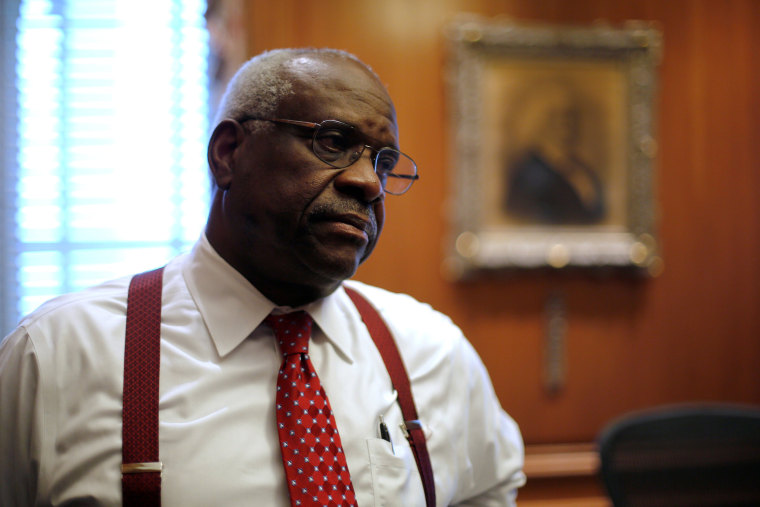After his election defeat, Donald Trump and his unfortunate legal team filed all kinds of lawsuits, and in the process, racked up an embarrassing record of defeats. The litigation had no practical effect; the Republican still lost; and President Joe Biden was inaugurated last month.
Some of the cases were, however, technically still pending -- at least until yesterday. The U.S. Supreme Court yesterday morning formally rejected a handful of pending election lawsuits, including challenges to results in states Trump lost, which made sense since the cases are now moot. As an Associated Press report added, the news was not at all surprising: "The court had previously taken no action in those cases and in January had turned away pleas that the cases be fast-tracked, again suggesting the justices were not interested in hearing them."
What stood out as notable, however, was the fact that there were two dissents. Justices Samuel Alito and Neil Gorsuch, for example, said a ruling could "provide invaluable guidance for future elections."
But as Slate's Mark Joseph Stern explained, Justice Clarence Thomas went much further in his own dissent, which targeted the integrity of voting by mail.
"Voting by mail was traditionally limited to voters who had defined, well-documented reasons to be absent," he wrote. The current trend toward more "permissive" mail voting, the justice warned, "vastly" increases "the risk of fraud." Thomas drew heavily from a 2012 New York Times article focusing on Florida's mail voting regime, which focused on a handful of fraudulent schemes involving mail ballots. The justice also pointed to a Republican operative's criminal attempt to steal an election in North Carolina using mail ballots. In reality, this kind of voter fraud is vanishingly rare, and its few perpetrators have been caught and prosecuted.
Thomas kept going, suggesting laws may be necessary to curtail postal balloting, to avoid the "appearance" of corruption, even if voting by mail is secure and reliable. He added that even if there's no evidence of election fraud, that's not "sufficient for election confidence."
It's become a standard Republican talking point: the more Republican officials deceive the public about the integrity of the electoral system, the less confidence their voters feel. Therefore, Republicans are justified in imposing new voting restrictions, not to address a problem that exists, but in order to address a perceived problem that doesn't exist.
The Slate piece added that Thomas, by pushing this line, "is bolstering Trump's paranoid attacks on mail voting, lending judicial credence to two foundational elements of the big lie: First, that vote by mail is inherently unsafe and insecure, and second, that fraudulent mail-voting schemes may be rampant yet 'undetected,' vindicating Trump's ridiculous claims that his voters are right to doubt the outcome of the presidential race."
Or put another way, one of the Supreme Court's most far-right members used a dissent to effectively play the role of partisan pundit.
"You don't have to be a prosecutor to understand how ludicrous Justice Thomas' dissent is," Rep. Ted Lieu (D-Calif.) responded soon after.
GOP officials and candidates routinely point to Clarence Thomas as a model for their ideal Supreme Court justice. Keep yesterday's dissent in mind the next time he receives such partisan praise.
